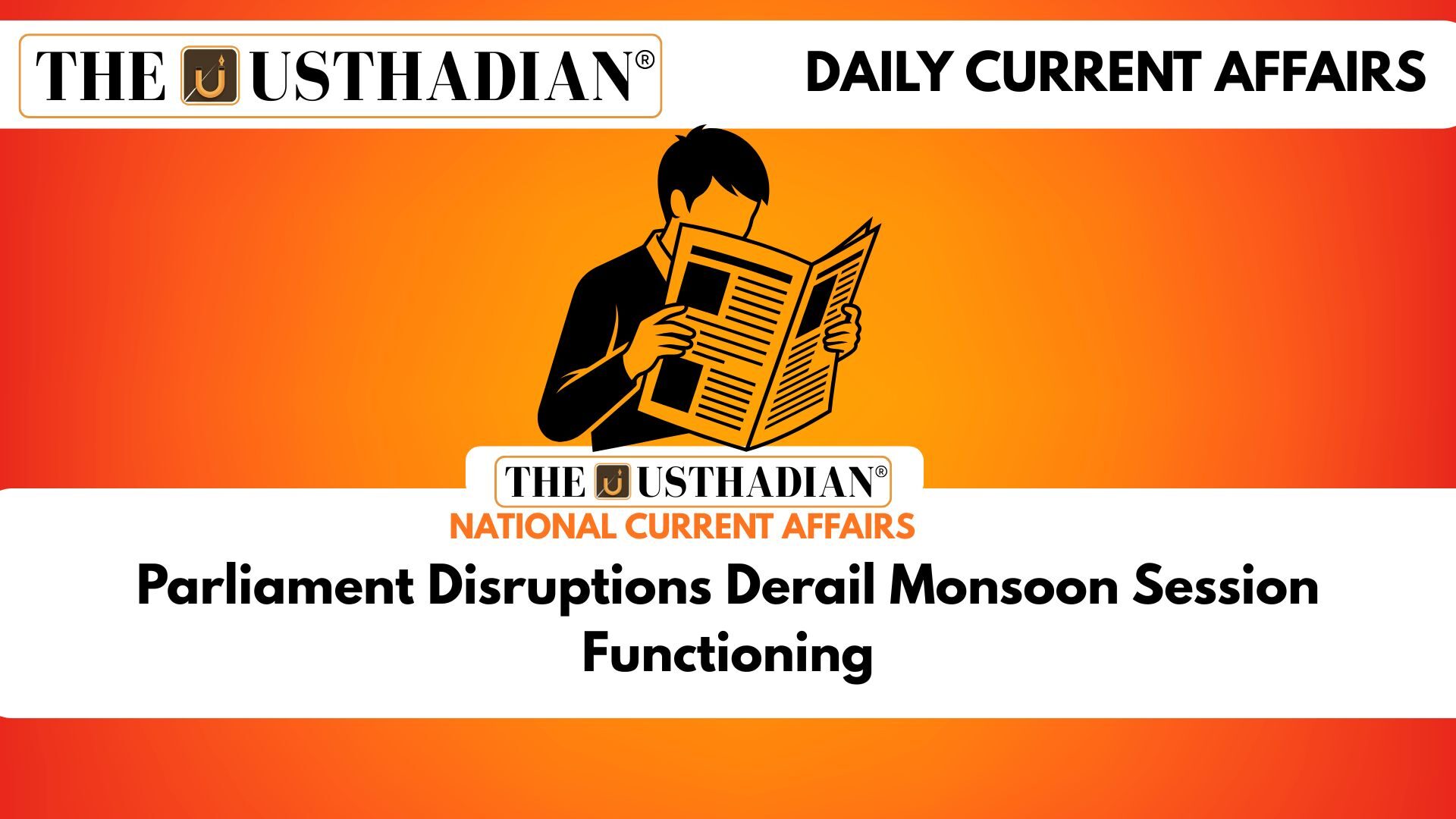Disruptions dominate the Monsoon Session
Parliament Disruptions Derail Monsoon Session Functioning: The first week of the 2025 Monsoon Session was marked by consistent disruptions, leading to significant loss of productive time in both Houses. While the 17th Lok Sabha functioned for 88% of its scheduled time, the Rajya Sabha lagged behind at 73%.
This pattern reflects a deeper institutional issue, where debates and discussions are routinely overshadowed by protests and adjournments.
Decline in Parliamentary sitting days
There has been a steep drop in the number of sittings over the decades.
Static GK fact: In the 1950s, Parliament met for 120–140 days annually. Today, that number is reduced to 60–70 days on average.
Fewer sittings, combined with disruptions, weaken the core legislative functions of discussion, oversight, and law-making.
Key issues caused by disruptions
Disruptions weaken democratic accountability. Parliamentary debates are crucial for holding the executive responsible. Constant interruptions erode this oversight mechanism.
There is also a high financial cost. It is estimated that running Parliament costs Rs 2.5 lakh per minute. Disruptions lead to massive public fund wastage without any legislative output.
Another fallout is the erosion of public trust. Citizens perceive Parliament as ineffective when elected representatives engage more in disruptions than in solving real issues.
Possible reforms to address the problem
One key solution is to allocate dedicated time to the Opposition.
Static GK fact: The UK Parliament reserves 20 days each year for Opposition-led agenda discussions, promoting inclusivity and reducing friction.
There is also a need to strengthen ethics committees. These bodies can monitor, document, and recommend disciplinary action for repeated disruptions, promoting internal accountability.
An Annual Parliamentary Calendar should be declared at the start of each year.
This would provide predictability in functioning, limit last-minute adjournments, and enforce better discipline.
Way forward
For Parliament to reclaim its role as a deliberative body, structural reforms must accompany a shift in political culture. Restoring dignity and functionality in Parliament is essential for safeguarding India’s democratic spirit.
Static Usthadian Current Affairs Table
Parliament Disruptions Derail Monsoon Session Functioning:
| Topic | Detail |
| Lok Sabha productivity (Monsoon Session 2025) | 88% of scheduled time used |
| Rajya Sabha productivity | 73% of scheduled time used |
| Cost of running Parliament | Rs 2.5 lakh per minute |
| Average sittings in 1950s | 120–140 days per year |
| Current average sittings | 60–70 days per year |
| UK Parliament Opposition time | 20 days annually |
| Reform suggestion | Strengthen ethics committees |
| Another reform | Implement annual parliamentary calendar |
| Democratic concern | Decline in accountability and public trust |
| Key challenge | Frequent disruptions in legislative business |








